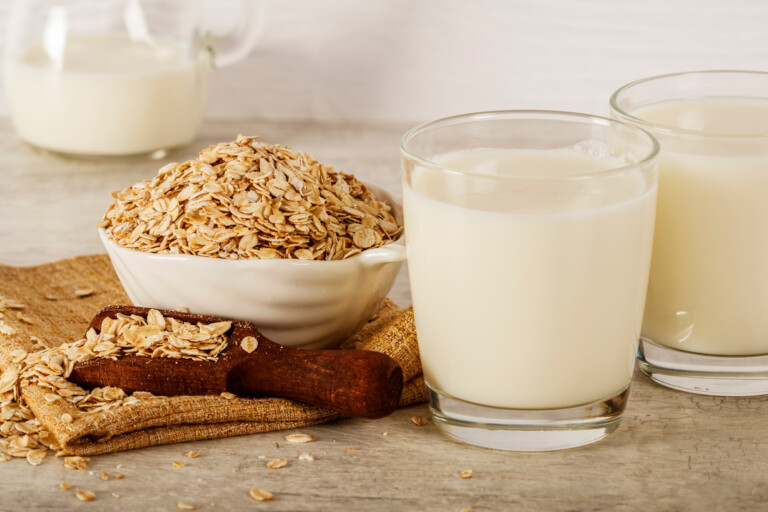What is Jackfruit
Jackfruit, scientifically known as Artocarpus heterophyllus, is a tropical tree fruit native to southwest India. This gigantic fruit has gained international popularity for its unique taste, versatility, and numerous health benefits. In this article, we’ll explore what jackfruit is, its uses, nutritional value, and the health benefits it offers.
What Does Jackfruit Look Like
Jackfruit is a large tropical fruit that is known for its distinctive appearance. Here are some key characteristics of jackfruit:
Size: Jackfruit is one of the largest fruits in the world. It can grow to a size of 80 pounds (36 kg) or more.
Shape: The fruit has a unique oblong or oval shape, and its size can vary. It is often elongated, with a slightly irregular, bumpy surface.
Skin: The outer skin of the jackfruit is green or yellowish-green and covered with small, spiky, cone-like projections. When ripe, the skin may turn brownish and become less spiky.
Segments: Jackfruit is composed of large, edible pods or bulbs that contain seeds. The segments are attached to a core or central core.
Color of Flesh: The flesh of the ripe jackfruit is yellow or orange, and it has a sweet and distinctive aroma.
Texture: The texture of jackfruit flesh is fibrous and has been compared to a mix of banana and pineapple. It is often used as a meat substitute in vegetarian and vegan dishes because of its texture.
Seeds: Jackfruit seeds are large and typically round. They are also edible and can be roasted or boiled.

What Does Jackfruit Taste Like
The flavor profile of jackfruit is a captivating blend of sweetness and subtle savory undertones, creating a sensory experience unlike any other.
Ripe jackfruit, with its golden-yellow hue and sweet aroma, offers a taste reminiscent of a mix between pineapple, mango, and banana. The succulent flesh has a natural sweetness that makes it a delightful snack on its own or a heavenly addition to desserts and fruit salads.
In its unripe form, jackfruit takes on a more neutral flavor and a meaty, fibrous texture. The young green jackfruit has a mild taste, making it an ideal canvas for absorbing the flavors of the dishes it’s cooked with. When prepared in savory recipes, it can resemble the texture of pulled pork or shredded chicken.
One of jackfruit’s remarkable qualities is its ability to absorb the flavors of the ingredients it’s cooked with. This makes it a culinary chameleon, seamlessly adapting to various culinary styles, from sweet desserts to savory main courses.
The seeds of the jackfruit, when roasted or boiled, add another dimension to its taste profile. They have a slightly nutty flavor, bringing a satisfying crunch to dishes or serving as a standalone snack.

What is Jackfruit Used For
Jackfruit is a culinary marvel, celebrated for its versatile nature. Its flesh, seeds, and even the unripe green jackfruit are utilized in a myriad of dishes. The ripe fruit has a sweet, tropical flavor and is often consumed fresh or used in desserts, jams, and smoothies.
What is Jackfruit Good For
Rich in Nutrients: Jackfruit is a nutrient powerhouse, providing essential vitamins and minerals. It is a good source of vitamin C, potassium, dietary fiber, and various antioxidants.
Low in Calories: Despite its sweet taste, jackfruit is relatively low in calories, making it a guilt-free option for those looking to indulge their sweet tooth without compromising their health goals.
Dietary Fiber: The high fiber content in jackfruit supports digestion and helps prevent constipation. Fiber also contributes to a feeling of fullness, which can aid in weight management.

Is Jackfruit Healthy
Jackfruit is indeed a healthy addition to a balanced diet. Here are some reasons why:
Promotes Heart Health: The potassium content in jackfruit helps regulate blood pressure, reducing the risk of heart disease.
Boosts Immunity: The vitamin C and antioxidants in jackfruit contribute to a robust immune system, helping the body fight off infections.
Supports Digestive Health: The fiber in jackfruit aids in digestion and promotes a healthy gut, preventing digestive issues.
Regulates Blood Sugar: Research suggests that jackfruit may have properties that help regulate blood sugar levels, making it a potentially beneficial food for those with diabetes.
Jackfruit is a tropical delight that goes beyond its extraordinary taste. From culinary creativity to health-conscious choices, jackfruit has become a favorite among food enthusiasts and nutritionists alike. Whether you enjoy it in savory dishes or as a sweet treat, jackfruit stands out as a versatile and nutritious addition to any diet. So, the next time you come across this massive fruit, don’t hesitate to explore its culinary wonders and savor the health benefits it brings to the table.





